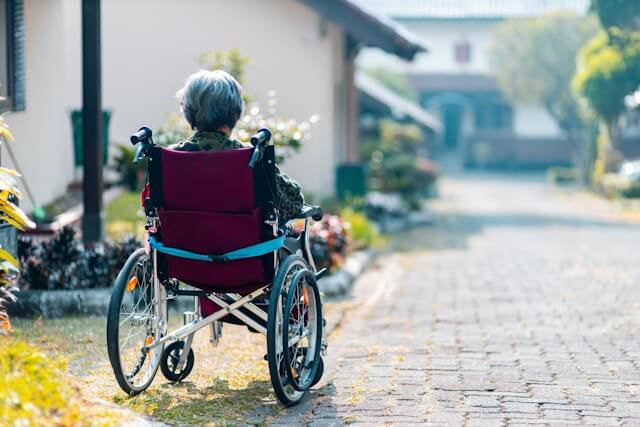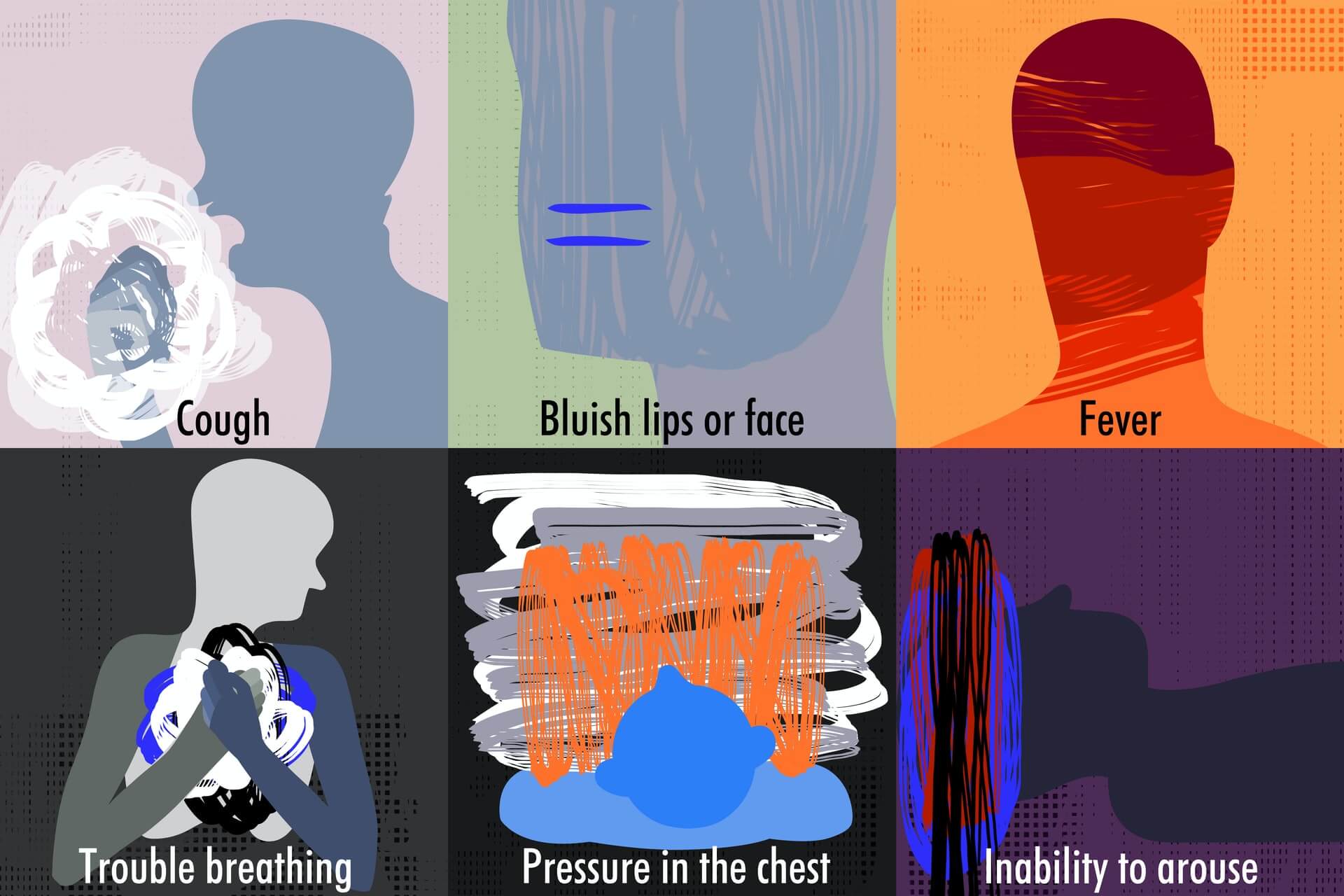When an older loved one begins forgetting things, it’s natural to wonder if it’s just part of aging, or something more serious like dementia. The two lines can feel blurry, especially in the early stages.
Families often struggle with knowing when to be concerned, what to expect, or how to discuss it. Whether you’re a student, a caregiver, or simply trying to understand a loved one better, this guide offers clarity and practical insights to help you navigate a complex but essential topic with more confidence and care.
You’ll learn about what makes everyday memory lapses normal, and when those changes could signal dementia. You’ll also learn about common warning signs, possible causes, how dementia is diagnosed, and available treatment options.
Normal Aging
As we grow older, our brains, like other organs, undergo changes. Certain cognitive abilities, such as processing speed, short-term memory, and multitasking, may decline. This doesn’t, however, usually disrupt daily life. Normal aging may cause:
- Slower recall of names or facts
- Occasional misplacement of items
- Difficulty concentrating under stress
- Mild forgetfulness without impact on judgment or social function
These changes do not prevent someone from living independently. While they may be frustrating, they are not considered pathological.
What Is Dementia?
The term ‘dementia’ doesn’t encompass a single disease. It is a group of symptoms affecting memory, thinking, language, judgment, and the ability to perform everyday activities. It is caused by damage to brain cells that interferes with their ability to communicate. Dementia is progressive, meaning symptoms worsen over time. Dementia can result from various diseases or conditions that damage brain cells. Some of the most common causes and their underlying pathology include:
- Alzheimer’s disease: Plaques and tangles disrupt brain cell function.
- Vascular damage: Stroke or poor blood flow can impair cognitive function.
- Parkinson’s disease may lead to dementia with Lewy bodies in later stages.
- Chronic alcohol abuse can cause Wernicke-Korsakoff syndrome.
- Infections, such as HIV or syphilis affecting the central nervous system.
Risk factors include:
- Age (risk increases with age)
- Family history of dementia
- Cardiovascular conditions (hypertension, diabetes)
- Smoking and alcohol use
- Depression or social isolation
- Low education or cognitive inactivity
It’s essential to keep in mind that dementia is not a normal part of aging, though aging is a significant risk factor.
Key Differences Between Normal Aging and Dementia
Some side-by-side comparisons to help you spot the difference:
- Names: Forgetting someone’s name but remembering later is normal for aging, but never remembering them can indicate dementia.
- Losing things: Misplacing or losing objects is normal as you age. In dementia, the symptom would be putting keys in strange places (like the freezer) and not finding them.
- Communication: Struggling to find a word but still able to communicate (normal aging) vs constantly forgetting words or repeating yourself (dementia)
- Time: Sometimes getting confused about the day is okay, but losing track of the date, time, or season regularly can indicate a bigger problem
- Mood: Mood changes with a reason are normal, sudden personality shifts or paranoia for no reason aren’t
- Dependency: people usually stay independent as they age, but needing help with bills, shopping, hygiene, or meals is common in dementia patients
Early Signs and Symptoms of Dementia
Recognizing dementia early can make a significant difference in treatment planning and quality of life. Common early warning signs are:
- Memory loss: Forgetting recently learned information, important dates, or asking the same questions repeatedly.
- Difficulty performing familiar tasks: Trouble completing routine tasks like cooking, driving, or managing finances.
- Problems with language: Struggling to find the right words, following conversations, or repeating oneself frequently.
- Disorientation to time or place: Getting lost in familiar areas or being confused about the time, season, or year.
- Poor or decreased judgment: Making unusual decisions or displaying risky behaviors, like giving away large sums of money.
- Changes in mood and personality: Becoming confused, suspicious, depressed, fearful, or anxious without explanation.
- Withdrawal from social activities: Avoiding hobbies, social events, or work due to cognitive decline or embarrassment.
Impact on Families and Caregivers
Dementia doesn’t just affect the person who has it. It involves the whole family. If you’re a caregiver, you might feel overwhelmed or exhausted. That’s normal, and you’re not alone. There are some things to keep in mind if you’re currently caring for a loved one with this disease. First, don’t hesitate to ask your friends and family for help. Confide in them to share your troubles; if no such person is available, you can also turn to professionals for assistance.
Community resources and professional services can play a key role. Services of care providers can offer assistance with daily activities, medication reminders, companionship, and respite care, allowing families to better manage responsibilities while ensuring their loved ones remain safe and supported at home. If you live in Queensland, professional home care providers on the Sunshine Coast can help ease the burden and improve patients’ and caregivers’ quality of life.
Additionally, you can join support groups. Sharing with others who are going through the same thing helps. You must take breaks. Opting for respite care or adult day programs can give you time to rest. Ensure you look after yourself and never neglect your health because you matter too.
Diagnostic Approach
A thorough diagnostic approach is essential for accurate identification and effective management. The evaluation begins with a detailed medical history and physical examination to assess symptoms, current medications, and any underlying health conditions that might lead to cognitive decline.
Cognitive screening tools such as the MMSE (Mini-Mental State Examination) and MoCA (Montreal Cognitive Assessment) are commonly used to evaluate memory, language, attention, and problem-solving skills. Blood tests are performed to rule out reversible causes like vitamin B12 deficiency, thyroid dysfunction, liver or kidney problems, or infections such as syphilis or HIV.
Brain imaging, including CT scans or MRI, helps detect structural abnormalities such as tumors, strokes, hydrocephalus, or brain atrophy, which may explain symptoms. In some cases, advanced imaging or PET scans may be used to identify amyloid plaques linked to Alzheimer’s disease. Early and accurate diagnosis ensures timely treatment, care planning, caregiver support, and access to essential social and medical resources.
Can Dementia Be Treated?
There’s no cure for most forms of dementia right now, but that doesn’t mean nothing can be done. Some medications and lifestyle changes can help slow things down or improve symptoms.
Medications
- Donepezil or rivastigmine: These are cholinesterase inhibitors. In Alzheimer’s disease and other dementias, the brain has a deficiency of acetylcholine (ACh) due to the loss of cholinergic neurons. These drugs inhibit the enzyme acetylcholinesterase, which usually breaks down ACh. This leads to increased Ach in the brain, enhancing transmission of neuronal signals.
- Memantine: In dementia (especially Alzheimer’s), there may be excess glutamate activity, leading to excitotoxicity and further neuronal damage. Memantine blocks NMDA receptors, which are a subtype of glutamate receptors. This reduces abnormal glutamate activity without blocking normal physiological function.
- Other meds for sleep issues, depression, or anxiety, if needed
Other Therapies
- Mental exercises like puzzles, games, reading, or memory training
- Physical activity, which can include walking, dancing, or gentle yoga
- Indulging in social interactions because staying connected helps.
- A safe home setup, which should include labels, calendars, and supervised help when needed
The goal is to keep life meaningful, comfortable, and safe.
Endnote
It’s normal to slow down a bit as we age. Forgetting where you put your phone or taking longer to find the right word happens to almost everyone. However, dementia is a medical condition that needs attention and support. The earlier you spot the signs, the better the outcome. Whether it’s dementia or just normal aging, understanding what’s going on helps everyone make informed decisions.



